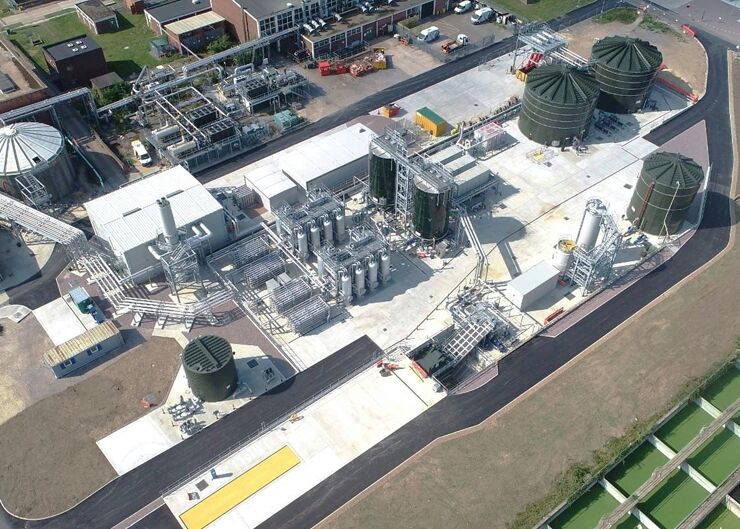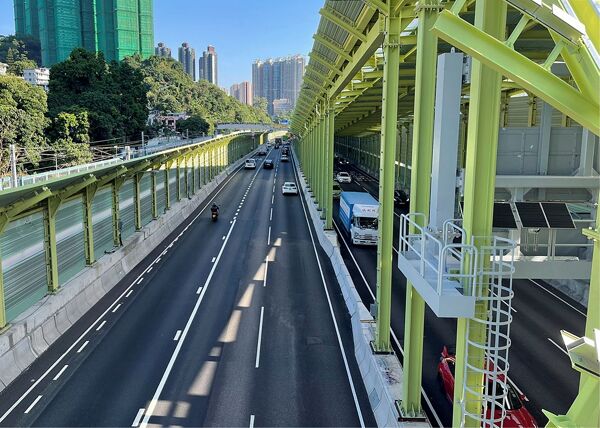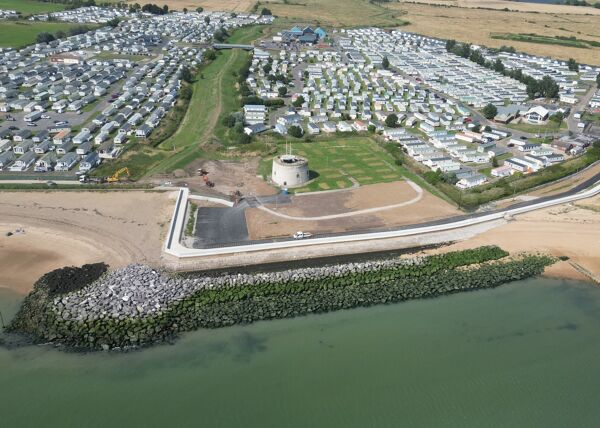
NEC has been used to deliver a new advanced anaerobic digestion plant at Severn Trent’s second largest sewage treatment works. The new thermal hydrolysis process at Stoke Bardolph near Nottingham can treat up to 120 t of sewage sludge a day, turning it into high quality biogas for around 9000 homes and class A agricultural fertilizer.
Severn Trent, which uses NEC contracts for all its capital procurement frameworks, let the £40 million project to Mott MacDonald Bentley in August 2019 under an NEC3 Engineering and Construction Contract (ECC) Option C (target contract with activity schedule). Despite the Covid-19 pandemic and significant additional works, the plant was delivered on time and budget in September 2021.
The works included design and installation of a thermal hydrolysis plant, steam-raising boiler house, dewatering centrifuges, cake import system, biogas to grid upgrade unit and a gas export main. All plant was manufactured, fully assembled and tested off-site before being separated into modules for delivery and installation, helping to reduce site time by 26 weeks.
The project won the ICE East Midlands Large Project of the Year, Team Achievement and Sustainability awards in 2022. It was also a finalist at the British Construction Industry Awards for two years running: in 2021 for the Industry Transformation and Innovation award and in 2022 for Utility Project of the Year award.
Collaborative approach
Severn Trent’s lead project manager James Morgan says the project team fully embraced the NEC requirement to act in a, ‘spirit of mutual trust and co-operation,’ and adopted a one-team approach from the outset. ‘Whole-team collaborative planning played a vital role throughout, with frequent collaborative planning sessions ensuring timely completion of all critical activities.’
He says the NEC-inspired collaborative helped to broaden everyone’s understanding and knowledge of the design, installation and process for the scheme’s various components. ‘With the entire team engaged, they felt free to raise potential issues through the NEC early warning process, enabling issues to be dealt promptly before impacting progress. This close collaborative approach contributed to the project being delivered on time and within budget.’
James Morgan says NEC’s flexibility enabled substantial changes to be made to the works information without significantly effecting the programme. ‘The total value of for extra works was around £10 million, including a major wash-water upgrade. All these were added to the contract smoothly and amicably through project manager instructions and promptly agreed compensation events.’
He adds that NEC-inspired collaboration also extended to third parties. ‘The team engaged early with Highways England and local councils to minimise disruption during the gas main installation, and formal notices and letters were sent to residents to explain the impact. Small gestures like spending time on a community litter-pick also went a long way to facilitating a smooth project with zero community complaints.’
Managing Covid risk
Severn Trent regional manager Michael Fairlamb points out that the collaborative ethos also helped to de-risk the project from the constraints and delays of the Covid-10 pandemic. ‘People and materials had to be brought in from mainland Europe and beyond, and the lockdowns made this all the more of a challenge. Careful design and the use of building information modelling, including digital twins, helped to ensure that the site layout was optimised and interfaces carefully managed before installation of the plant commenced. This reduced construction and installation timescales and improved our health and safety performance.’
Severn Trent bioresources operations team manager Colton Cropper concludes the project was a textbook example of quality collaboration. ‘Bringing together multiple factions and ensuring all our experience was shared created a safer, better, faster scheme delivered to the highest standard. The quality of the delivery of this project has been second to none.’
Benefits of using NEC
- NEC requirement to work in a, ‘spirit of mutual trust and co-operation’ engendered a highly collaborative, one-team approach from the outset, helping ensure completion on time and budget.
- NEC-inspired collaboration helped to manage risk during the Covid-19 pandemic and extended to relationships with external authorities and residents.
- NEC flexibility enabled significant extra works to be added to the contract scope with minimum impact on the programme.



